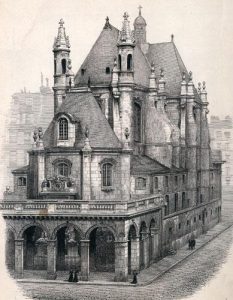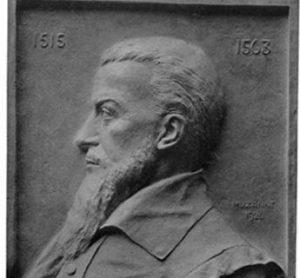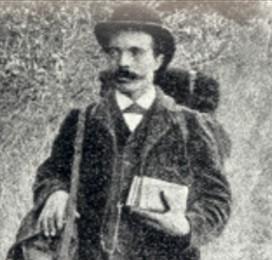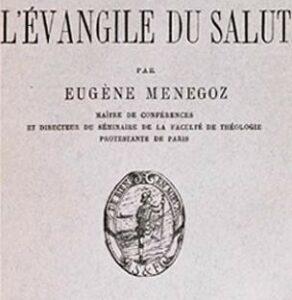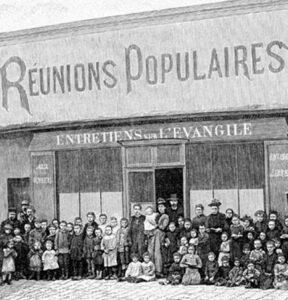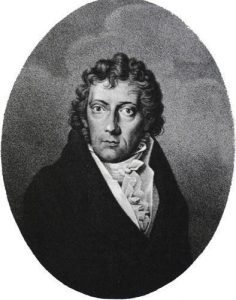Origins of liberalism
« Liberal Protestantism », though not organised as a movement, encompassed a wide variety of themes and movements more or less related to each other.
Liberal Protestantism originated in the 16th century with Castellion and Socin. In the 18th century the philosophy of the Enlightenment favoured its development. It influenced university Protestant theology in Switzerland, as well as the teaching at the Lausanne seminary created by Antoine Court to train French pastors during the years of persecution.
Liberal Protestantism expanded and was theologically confirmed at the beginning of the 19th century by the work of the German Frederic Schleiermacher, introduced in France by Pastor Samuel Vincent. Until World War I, Schleiermacher’s views predominated in university theology in Germany, but somewhat less in France.
Characteristics of Liberalism
In the 19th century many French Protestant intellectuals adopted liberal trends. These had the following characteristics :
- Much attention was given to culture. As Schleiermacher put it, a « Barbarian Christianity » was not wanted which meant that Christianity must not lag behind modern ideas and values. Pastors and worshippers alike were expected to have a solid general education, and to be able to participate in the main debates on current issues. Pastor S. Vincent tried to promote French Protestant theological culture by means of a revue.
- The refusal to oppose faith and reason. This led to the limitation of the supernatural in Christianity. Liberals wished for a faith well thought out. But, except for a few of them, they were neither rationalists nor unconditional intellectuals. They were influenced by the then prevailing romanticism, and insisted on religious experience, on concrete action, and on strict morality, all of which brought them close to Revivalists.
- A change in the notion of dogma, following Scleiermacher’s thinking. Dogma is not considered as a matter of faith, declaring what must be believed in. It is an expression of faith stating how a human group, within its own culture and with its own sensitivity, expresses its beliefs. It is therefore relative and can be revised.
- A study of the Bible, by applying to it the same philological and literary critique as that used for secular literature. As from 1850, the work of German scholars, notably those of the radical school in Tübingen, reached France. Reactions were varied : some were most enthusiastic, others more restrained, and still others overtly hostile, especially amongst those who feared for the overthrow of the Bible’s authority and the denial of the unique character of Jesus.
The ideas and methods of the liberals divided Protestantism. At the end of the 19th century, conflicts abated because the most extreme liberals had left the pastoral ministry. Debate moved to other subjects and became influenced by the movements of Fideo-symbolism and social Christianity.

